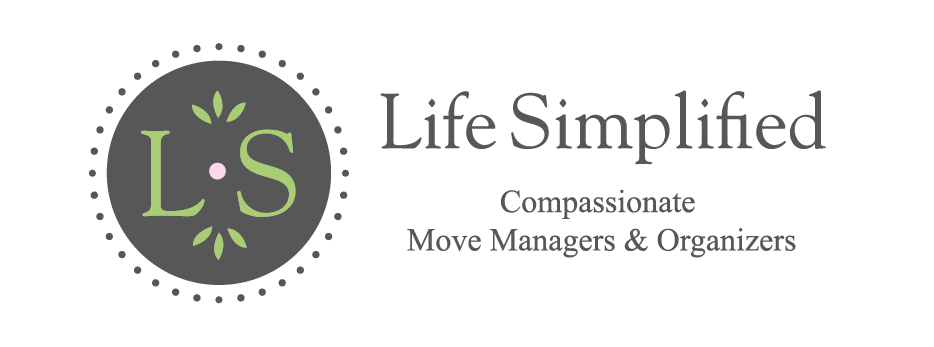Why to Hire an Organizer
Isn't that just paying someone to do something you could do yourself? And you're not wrong, but the operative word there is could…
Sure, it turns out I was capable of accomplishing the task on my own, but it wasn't getting accomplished. It's like how having a trainer at the gym ensures that you actually go to the gym!
But not everyone who hires a professional organizer lives in a disaster zone. Our clients range anywhere from busy professionals to busy stay-at-home parents. Their reasons for hiring a professional organizer vary greatly. Here are some common reasons I’ve seen for why someone hires a professional organizer:
- They have a particular room/project that they need extra assistance. Sometimes it might be a closet they’ve been wanting to tackle but haven’t had the time or the motivation to get it accomplished. Sometimes they have a deadline they are trying to meet and can’t meet it without some extra help.
- They are feeling overwhelmed and don’t know where to start or how to go about organizing. The majority of people who call me tell me they are overwhelmed and don’t know where to start. Sometimes they just need some guidance to get started and can follow a plan once they understand the process.
- They physically or mentally can’t get the project done on their own. Many of my clients have physical or mental issues that keep them from organizing their space. They know what they want done but aren’t able to do it on their own.
- They don’t have the time to do it. Although our clients are involved in the organizing process (someones got to make decisions about what stays and what goes), the whole process goes faster and more efficiently if they have a professional working alongside them. Also, they realize once they have systems in place, they will save more time in the long run.
- They don’t know how to organize. Organization is not a trait everyone has and it’s not something that comes naturally to some people. I always tell people that not everyone is good at everything and there is nothing wrong with asking for help with things that are not your strength. It’s better to ask for help than to beat yourself up for something that isn’t a skill you possess.
- They can’t do it themselves. Many people tell me they should be able to “do it themselves”. There are a lot of things people can do themselves but do they really want to? Is your time better spent doing something yourself or hiring someone to help do it for you? This is the case with many tasks and services – like cleaning your home, painting a room, landscaping, etc. You’ve got to decide where your time is best spent.
Myths
It doesn’t seem to matter who they are, where they live or work. It’s not important whether they have their own business, work for someone else, whether they work from or at home, or are retired. And age and gender are not relevant factors. At one time or another, most, if not all, people I’ve come into contact with have expressed the same questions and concerns
These comments and questions – and the subsequent stories they tell – are the reasons why I wanted to write about the myths and misconceptions people have about hiring a professional organizer.
Most of the myths and misconceptions seem to be coming from the television shows people are watching. You’ve probably seen them too – someone comes into a person’s home and tells them what to do, what they have to get rid of, and why they’ve gotten into this situation in the first place. And in 30 minutes, an organizer has totally transformed the person’s living space. And it is recorded for all to see – the tears, the heartache, the frustrations. A person’s sense of control over their space and belongings vaporizes as others take over. The high drama keeps us sitting on the edge of our seats!
Well, erase those thoughts and television shows from your mind. Here are the answers to the burning questions you’ve always wanted to ask ...
Myth #1 – You’ll make me throw my stuff away.
The reality: This is the most common thing I hear. When people say this they often do so with real fear and concern in their voices, and sometimes an uncomfortable laugh accompanies the words because deep down inside they are really hoping it couldn’t possibly be true. The reality is we don’t throw your stuff away. I help you make conscious, well-informed decisions about what you want to keep and what you don’t want to keep. The decision is always yours.
Myth #2 – I don’t want to throw perfectly good things away. (Or I don’t want to fill up the landfills – I’d rather keep stuff I don’t want than do that!).
The reality: I don’t want you to throw good things away, nor fill up the landfills either. That’s why I offer ideas and suggestions for those things you’ve decided that you no longer want or need. I work with you to find other uses for those items, suggestions of where you could donate, sell, or give away the items, etc.. Things that still have some use left in them deserve to be in the hands of people who can use them. However, there are some things that will likely just need to be put in the garbage or recycled in some way. Again, the decision is ultimately yours.
Myth #3 – It’ll cost too much to hire an organizer.
The reality: You can invest a small amount of money, or a large amount – depending on your needs and what you want to accomplish. What is it worth to you to live a life that has less stress, frustration, chaos? What is it worth to you to have more time and energy to pursue your interests? What is it worth to you to get as much as you can out of your day and to live and work as efficiently and effectively as possible? How much are you willing to invest so that you are living your best life possible? Each of us comes with our experiences, training and specialties – and there is great value in that. Getting organized may not be your strong point so seeking help is….helpful.
Myth #4 – If I decide to get things organized does this mean I have to spend money on all sorts of ugly plastic containers and closet systems?
The reality: Most of the time you can find and use other things you already have instead of buying more ‘stuff’. It’s been my experience that clients find it very gratifying to find a new purpose and use for ignored or forgotten items. If items you already have can’t be used (for one reason or another) then I can suggest some things for you to consider buying—but only if other items you already have aren’t suitable for the job you want them to do.
And since I get to know what your preferences and needs are I take that into account when making any suggestions and recommendations.
Myth #5 – Are you as organized as I imagine you must be? Your place must be super organized.
The reality: Generally, professional organizers are … well… organized! That doesn’t mean we’ve necessarily been born that way. Some of us learned some tricks along the way through our own trials and tribulations of life. We’ve discovered that finding more efficient and effective ways to do things can not only be fun, but it helped us achieve our goals. Experimenting to find the right strategies that work best for us can be an enjoyable challenge. Some of us may not start out being organized at all, but due to situations and circumstances learned how to be more organized—out of necessity. Professional organizers live in the same world you do! We have multiple demands on our time and resources, we have multiple decisions to make every day—just like you. We have times when we are late for meetings or appointments, have times when we can’t find things as quickly as we’d prefer, and we too feel like there are times when we might want to be a bit more organized.
The difference is that disorganization isn’t what caused those situations to happen in the first place, and the organized systems that we’ve created for ourselves help us to function effectively even when the world seems to spin a bit too fast sometimes.
Myth #6 – Everything is already neat and tidy, so organizing doesn’t really apply to me anyways.
The reality: Neat and tidy is not the same as organized. Having unwanted, unneeded, unused items neat and tidy doesn’t mean they’re organized. Being organized will mean different things to each of us. If things are organized you likely don’t have large surpluses of unused, unwanted, broken items taking up valuable space in your home and workplace. If things are organized you can find things quickly and with minimal fuss when you want them, you know where things go when you want to put them away, and you likely feel like you have things (time, energy, etc.) under control.
Myth #7 – It won’t take you very long to get me organized, will it?
The reality: It’s not likely that your degree of disorganization ‘happened’ over the course of a few hours. It was likely gradual – a few papers not dealt with, followed by more things left unfinished, and not put away after you used them. You may have been prevented from staying as organized as you once were because of illness or added responsibilities at home or work. And before you knew it you had chaos and clutter all around you and you weren’t quite sure how it happened.
It’ll take time to work through the various steps to start and complete an organizing project, and to create systems that will work for your unique situation. The 30 minute television shows are not a realistic picture of the time it takes to do the work, nor of the amount of effort and energy that are necessary. Most organizers don’t have a team of 100 people to do the work!
Myth #8 – I feel overwhelmed at the thought of starting to organize my space. Can’t you just come in and organize it while I’m away for a few days?
The reality: No, I can’t. Unless you want someone else deciding what is important to you. Organizers are very capable of making decisions about what could be kept or not, about where things could be put, about how things could be stored/displayed/filed, etc. But do you really want someone else making your decisions for you?
Myth #9 – I bet my place is the worst you’ve ever see!
The reality: When people suggest that to me (and many, many people have), I tell them that there’s nothing about their situation, their home, their workplace that is going to mortify me, nor surprise me. Sometimes people want to wait and book a consultation after they’ve taken some time to organize things first. This always creates an opportunity for laughter when they realize what they’ve said. That would be like fixing the toilet before the plumber came over to fix it. Organizers are not going to be shocked at whatever you show them. When an organizer comes into your home or workplace we are there to help you, not to judge you. We are there to help you learn some skills that you can use for the rest of your life.
Myth #10 – When I get this organizing project finished, I’m done!
The reality: Organizing is a continuous process. It’s not something that takes place and then you are finished forever! It’s an ongoing process, and once you get organized it’s much easier to maintain and keep it that way. It’s like car maintenance – you don’t just have routine maintenance done once and then never do it again. If you want your car to work well you need to keep it maintained so it’s working at its best. The same is true for the organizing systems you’ve created – it’s necessary to maintain them so they work the best they can for you. This might mean fine-tuning them so they work even better, or making modifications when your situations, circumstances and needs change. For example – think about your clothes closet. Are all the clothes and items stored in there the same as from 5 years ago? Are the papers in your filing system never sorted through and cleaned out from time to time to make room for new papers? Things change. What you want changes, which things are important to you changes, and how you want things organized changes too. One of the nice things about incorporating basic organizing principles into the systems we create is that it won’t take you as long to re-organize or fine tune things when you want to.
Each of us have our own myths and misconceptions about a variety of topics. If you have other ones that have not been mentioned above, please give me a call or send me an email. I would be delighted to hear from you.
Now, are you ready to get organized?




